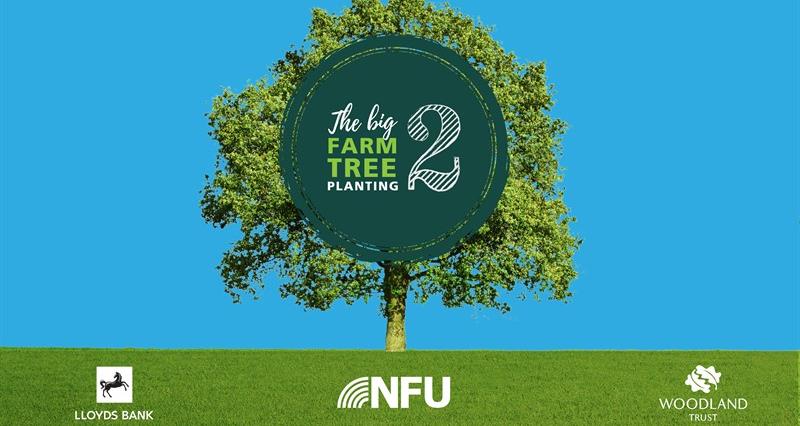Another 5,000 native trees are on offer for planting on farms across Yorkshire and the North East as the NFUтАШs Big Farm Tree Planting is launched for another year.
The result of ongoing collaboration between the NFU, the Woodland Trust and Lloyds bank, the Big Farm Tree Planting 2 sees NFU members in the North East offered a further 500 packs of 10 free trees complete with stakes and guards.
The aim of the project is to highlight the value of on-farm trees, weather enhancing hedgerows, providing shelter belts for livestock, wildlife corridors or transforming unproductive field corners with small tree clusters. It is also intended to help farmers on their journey to Net Zero, boosting on-farm carbon storage as well as helping enhance farmland biodiversity.
All farmers need to do now is register using the button below to be able to collect their trees in February 2022 from four locations around the region - Hexham, Darlington, York and Skipton.
Tremendous interest┬а
Regional environment adviser, James Copeland, says once again the aim is to emphasise the value of small-scale on-farm planting and single trees in the landscape.┬а
He said:
┬а"Last year the Big Farm Tree Planting proved very popular with 5,000 trees allocated in just a few short weeks. This prompted us to repeat the offer for second year thanks to the continued support from our partners. And given that we ended up with a waiting list last year, IтАЩm sure they will be snapped up quickly."
Sian Atkinson Senior Outreach Manager at the Woodland Trust said it is good to be working with the NFU once again as farmers embrace the benefits that small-scale tree planting can bring.
She added:
"Planting the right trees in the right place on your farm, as well as attracting and supporting wildlife, can provide shade and shelter for livestock, and food for pollinators. Increasing tree cover is now recognised as key to tackling the nature and climate crises in the UK, and these ten-tree packs give NFU members the opportunity to play a part."┬а
All the trees are sourced and grown in the UK or Ireland to help in the fight against pests and disease and to make the landscape more resilient to these threats.┬а
